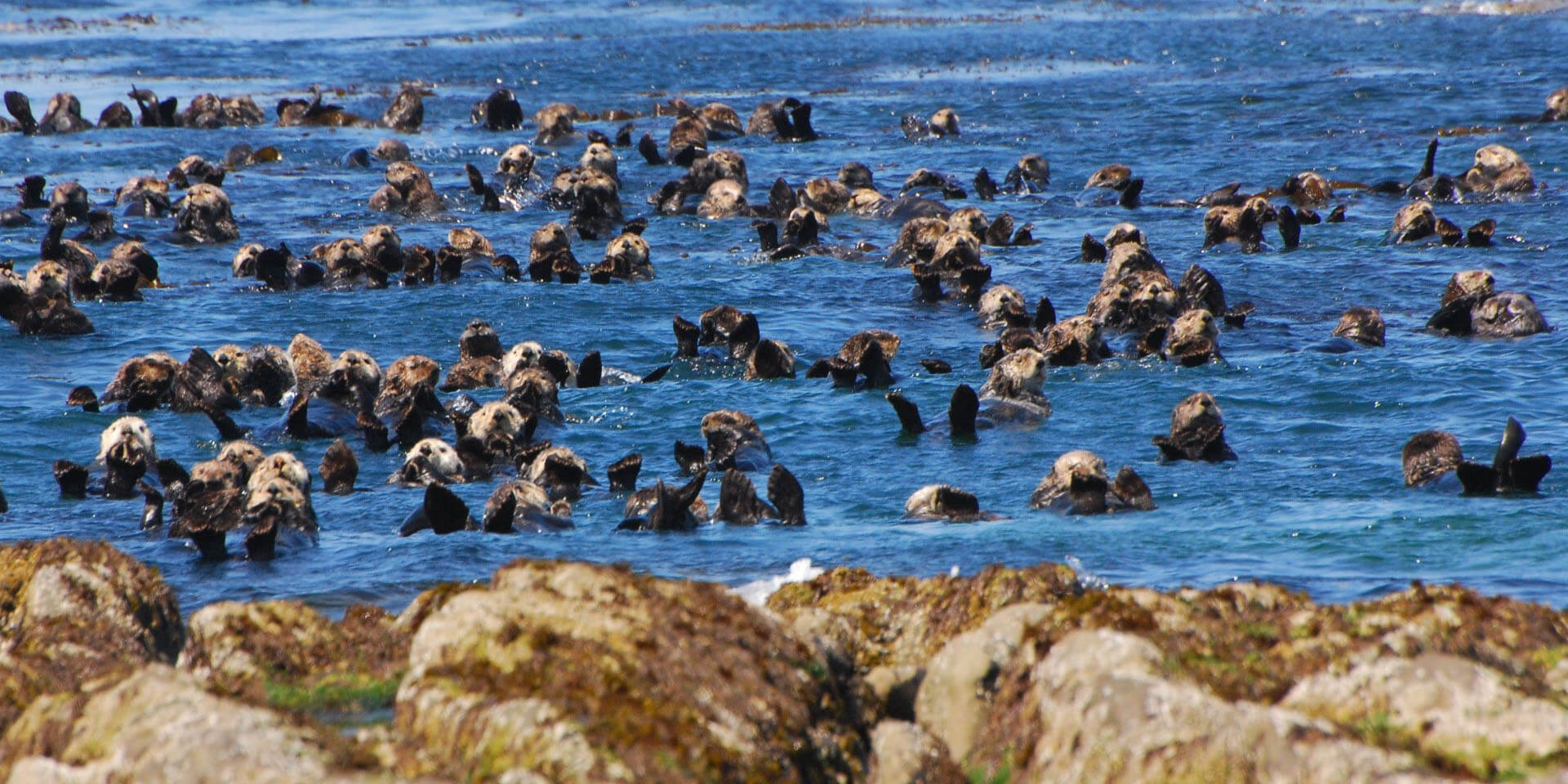Other Reports
Browse the list below to find various reports covering a wide range of topics prepared, sponsored, or includes perspectives by the Marine Mammal Commission.
Federal Employee Viewpoint Survey
The Federal Employee Viewpoint Survey (FEVS), administered by the U.S. Office of Personnel Management (OPM), provides federal agencies with insights to help them better understand employee trends. The survey illuminates employees’ opinions about their jobs, working conditions, their supervisors, and their leadership. Agencies are required to make these results publicly available.
Marine Mammal Commission FEVS Results 2020-2024
Marine Mammal Co-management Review in Alaska
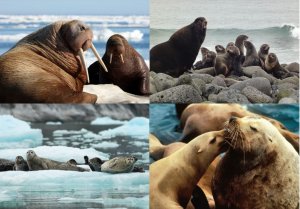
Top Left: Pacific walrus (Shutterstock); Top Right: Northern fur seals (Rolf Ream, NMFS); Bottom Left: Harbor seals (Brandon Southall); Bottom Right: Steller sea lion (NMFS)
In this report the Commission recommends ways to strengthen relationships and support marine mammal co-management in a region where marine mammals provide food security for Alaska Natives and are also of critical ecological, social, and economic importance. Funding for this review was provided by a grant from the North Pacific Research Board to identify essential components and key impediments to effective co-management of marine mammals in Alaska.
Links to full report and 4-page report summary
July 2019
Prepared by the Marine Mammal Commission
Review of Stock Assessment Reports
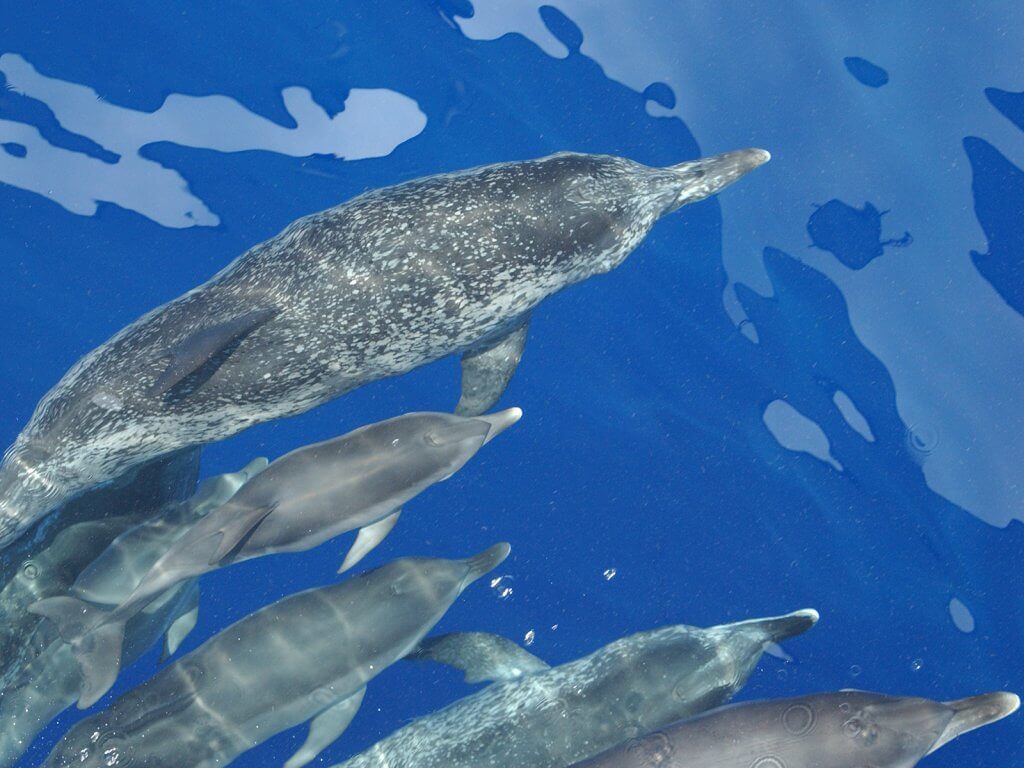
Atlantic spotted dolphins. Photo taken under NOAA-SEFSC MMPA Permit No 779-1633 (K Mullin, NMFS SEFSC)
In this report the Commission reviews the efforts by the National Marine Fisheries Service (NMFS) to assess marine mammal stocks as required by Section 117 of the Marine Mammal Protection Act of 1972 (MMPA, 16 U.S.C. et seq.). Inadequate information in the stock assessment reports compromises NMFS’s ability to prioritize its management and recovery actions in any meaningful or effective way. It also impedes the accurate evaluation of impacts from permitted sectors such as fisheries, energy, and defense, as well as impacts of catastrophic events such as the Deepwater Horizon Gulf Oil Spill, exposing marine mammal stocks to unnecessary risks.
Links to full report and 1-page report summary
June 2016
Prepared by the Marine Mammal Commission
Link to an updated summary report
March 2018
Prepared by the Marine Mammal Commission
NMFS updates some of stock assessment reports annually and the Commission reviews and provides recommendations on these updates. Click here for the Commission’s most recent recommendation letter.
Science and Conservation Priorities Report
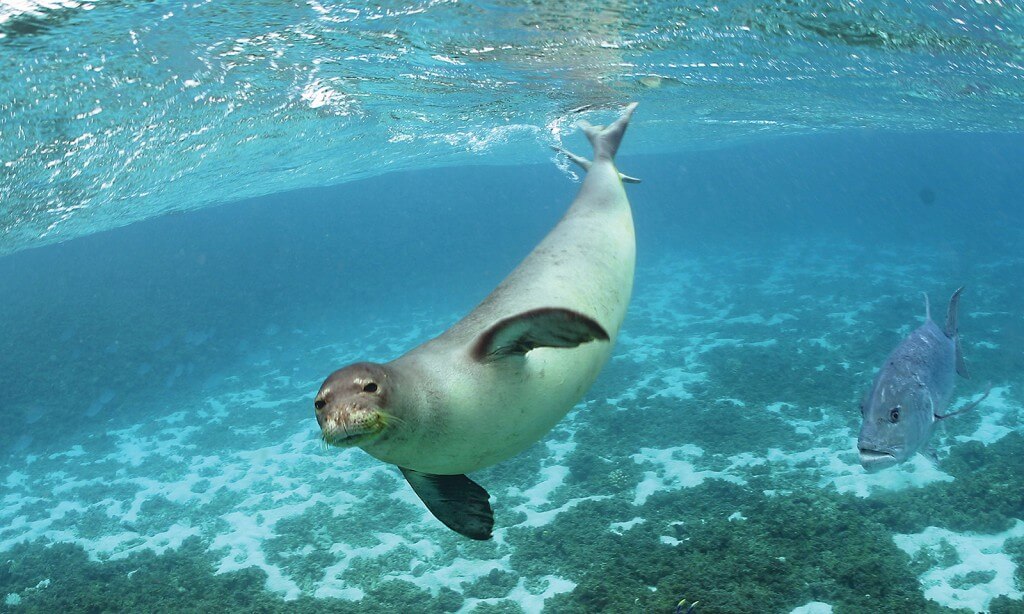
Hawaiian monk seal, Papahanaumokuakea Marine National Monument. (NOAA)
Recognizing that increased funding alone will not ensure that the goals of the Marine Mammal Protection Act (MMPA) are achieved, the Commission undertook a “Priorities Project” to assist agencies in identifying the Nation’s most pressing marine mammal science and management needs. This report summarizes the findings of the Priorities Project and provides guidance to those involved in funding decisions to enhance the effectiveness of research and management actions focused on the conservation of marine mammals and marine ecosystems.
Marine Mammal Science and Conservation Priorities for the National Marine Fisheries Service
July 2014
Prepared by the Marine Mammal Commission.
Reports in Response to Congressional Directives
The following reports were prepared by the Commission at the request of Congress:
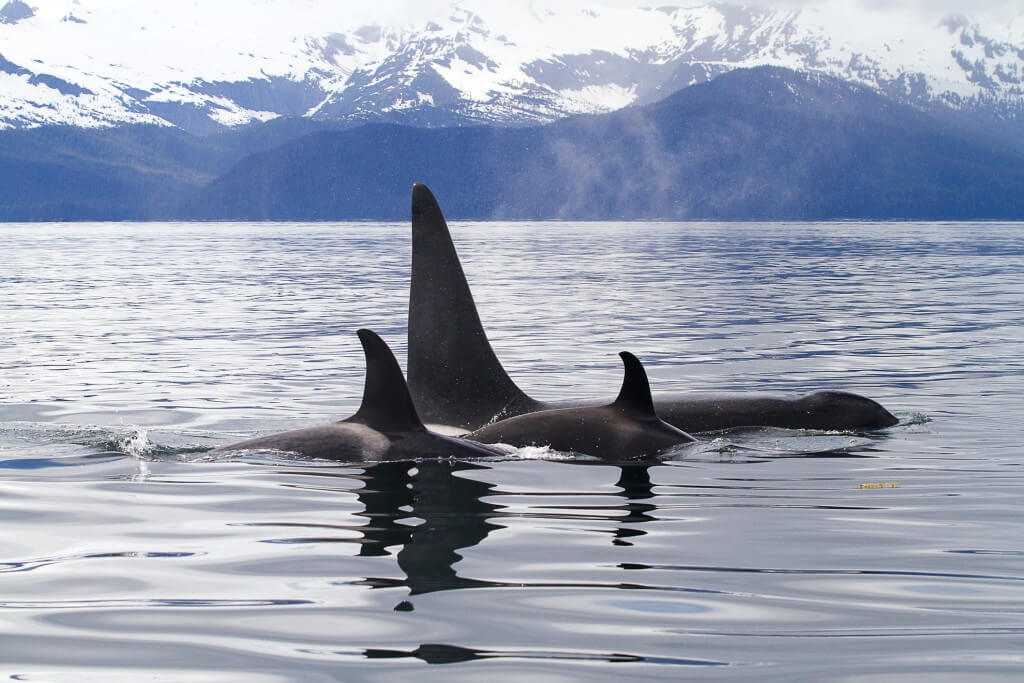
Killer whales in Southeast Alaska. (Thomas Jefferson, NOAA Alaska Fisheries Science Center)
The Ecological Role of Marine Mammal-Eating Killer Whales in The North Pacific Ocean Surrounding Alaska
April 2016
Prepared by the Marine Mammal Commission.
The Biological Viability of the Most Endangered Marine Mammals and the Cost-effectiveness of Protection Programs
February 2008
Prepared by the Marine Mammal Commission.
Endangered, Threatened, and Depleted Marine Mammals in U.S. Waters – A Review of Species Classification Systems and Listed Species
2007
Prepared for the Marine Mammal Commission by Lloyd Lowry, David W. Laist, and Elizabeth Taylor.
The Status of Protection Programs for Endangered, Threatened, and Depleted Marine Mammals in U.S. Waters
July 2007
Prepared for the Marine Mammal Commission by Michael L. Weber and David W. Laist.
Report of the Workshop on Assessing the Population Viability of Endangered Marine Mammals in U.S. Waters
September 13-15, 2005
Savannah, Georgia
Prepared by the Marine Mammal Commission.
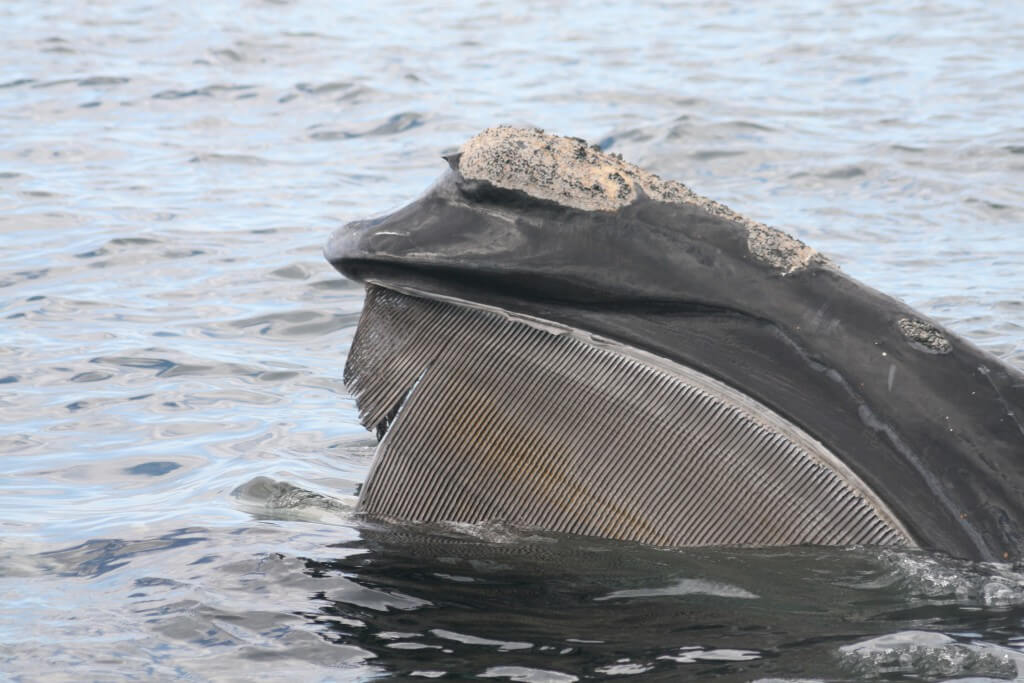
North Atlantic right whale. Photo taken under NOAA Permit #605-1904. (NOAA)
Report of the North Atlantic Right Whale Program Review
March 13-17, 2006
Woods Hole, Massachusetts
Prepared for the Marine Mammal Commission by Randall R. Reeves, Andrew J. Read, , Lloyd Lowry, Steven K. Katona, and Daryl J. Boness.
Marine Mammals and Noise: A Sound Approach to Research and Management
March 2007
Prepared by the Marine Mammal Commission.
Workshop Background Documents
The Advisory Committee on Acoustic Impacts on Marine Mammals
February 2006
Prepared for the Marine Mammal Commission by Suzanne Orenstein and Lee Langstaff.
Freedom of Information Act Reports
The Freedom of Information Act (FOIA), 5 U.S.C. § 552, enacted in 1966, provides for public access to federal agency records, subject to certain exceptions. More information on the Act and how to submit a request is available at https://www.foia.gov/.
FOIA Annual Report
FOIA requires each federal agency to submit an annual report to the Attorney General. These reports contain detailed statistics on the numbers of requests received and processed by each agency, the time taken to respond, and the outcome of each request, as well as many other vital statistics regarding the administration of the FOIA at federal departments and agencies. These reports also contain basic information about how and where to make FOIA requests. Below you can find the Marine Mammal Commission’s report.
Marine Mammal Commission FOIA 2021 Annual Report
Chief FOIA Officer Report
FOIA Guidelines issued by the Department of Justice require each federal agency’s Chief FOIA Officer to submit a report to the Attorney General containing a detailed description of the steps taken by the agency to improve FOIA compliance and transparency. These reports contain details of FOIA administration at each agency, as well as the steps taken to implement the FOIA Guidelines during each reporting year. Below you can find the Marine Mammal Commission’s Chief FOIA Officer report.
